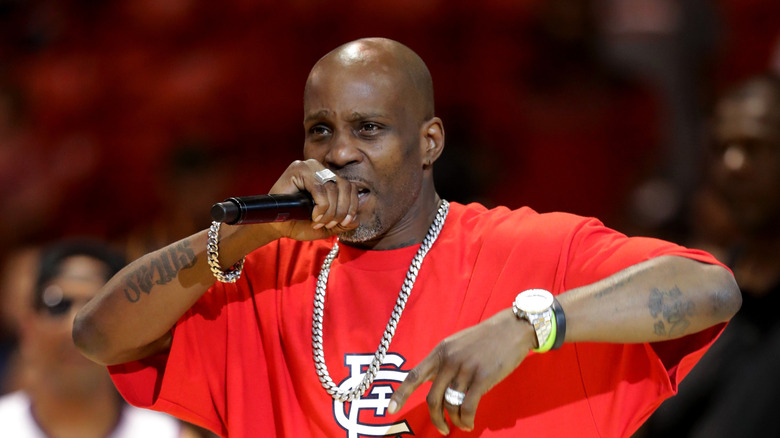The Devastating Reason Why So Many Rappers End Up Broke
Too often, rappers see huge advances as never-ending checks. They blow money on luxury cars, jewelry, and large entourages, yet forget to set aside anything for taxes or savings. T-Pain, in an on-air chat with The Breakfast Club in August 2019, told Charlamagne Tha God that he once had about $40 million in the bank, but he blew it on bad real-estate deals, cars, and houses. He got so low he had to borrow money to get his kids Burger King.
MC Hammer pulled in about $33 million, per Forbes, but by 1996 he was forced to file for bankruptcy. He had 200 people on his payroll, owned 17 luxury cars, and flew a private jet. Hammer founded Oaktown Stable in 1991; the Seattle Times reported the family had 18 thoroughbreds, and built a mansion that cost $30 million. When he finally added up everything he owed, his debts reached $13.7 million — showing how fast money can vanish, when you keep making financial mistakes.
In case you wonder how Hammer had 200 people on his payroll, know that a fresh-minted star inherits an entourage. Managers, booking agents, publicists, accountants, security guards, stylists — and the childhood friend who suddenly runs "day-to-day". In theory, each person shields the artist. In practice, a bloated crew can torch cash faster than the rapper can earn it. By the time the royalty statements arrive, the artist realizes too late that loyalty without vigilance is a shortcut to bankruptcy.
Predatory label deals
Predatory "recoup first" clauses can block a rapper from releasing new music while the label takes every dollar. Nashville's Young Buck found this out the hard way. After G-Unit Records and Interscope froze his catalog over a royalty dispute, his income dried up while tour expenses, security bills, and mortgage payments kept coming. With the IRS threatening to auction off his studio gear, he filed for Chapter 13 in August 2010 and even planned to sue 50 Cent and G-Unit for $5 million in withheld royalties. The next year, The Wall Street Journal revealed that 50 Cent tried to claim Buck's master recordings in bankruptcy court — essentially paying himself first before any other creditor. That move, a textbook example of "self-recoupment," left Young Buck with nothing to live on.
This problem isn't native to only up-and-coming stars as even selling more than 10 million copies couldn't save TLC from a bad contract. The 1994 hit album "CrazySexyCool" went multi-platinum, yet the group — including rapper Lisa "Left Eye" Lopes — saw just 60 cents for each record sold, according to the Los Angeles Times in 1996. That's because LaFace, Arista, and Pebbitone stuffed every tour bus, video shoot, and wardrobe expense into their recoup ledger. When the label refused to renegotiate, TLC had no choice but to file for Chapter 11 in July 1995, calling the deal "unconscionable." A year later, at the 1996 Grammys — where they won two awards — they were still technically bankrupt.
The IRS factor
No one likes an IRS audit, most especially a rapper who has millions in unpaid taxes. In July 2013, DMX (Earl Simmons) turned to bankruptcy protection in Manhattan, showing fewer than $50,000 in assets against nearly $10 million in debt, according to the Wall Street Journal. Most of what he owed came from unpaid child support, but prosecutors later revealed his tax mess ran even deeper. In July 2017, a 14-count federal indictment accused him of hiding millions and stiffing the IRS for $1.7 million. According to the Justice Department, he tried to reroute appearance checks without withholding and stashed cash under friends' names. He ultimately pleaded guilty and spent a year in federal prison. Even after his release, he faced hefty restitution payments that kept him insolvent until his death.
Lil' Kim also found herself buried under years of unpaid taxes. In June 2018, per The Blast, she filed for Chapter 13, listing about $2.57 million in assets and $4.08 million in debts — $1.85 million of which she owed the IRS going back to 2004. That bankruptcy filing halted a foreclosure on her New Jersey mansion and laid out a five-year repayment plan. When the case trustee raised objections, Kim had to sit down with the IRS directly. By 2019, the court dismissed her Chapter 13, but she spent another four years untangling federal liens. In 2023, she finally settled her last tax bill.


